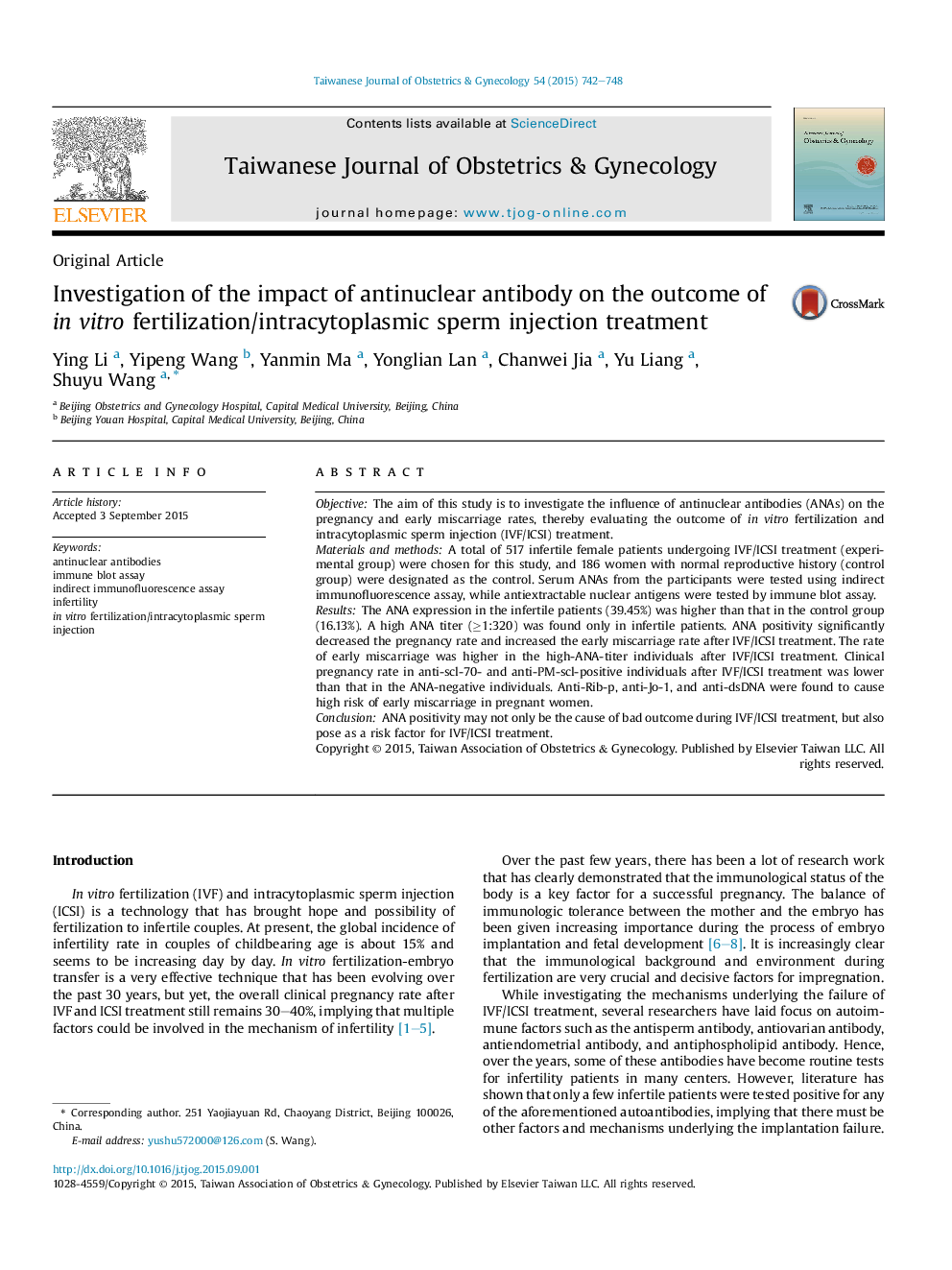| Article ID | Journal | Published Year | Pages | File Type |
|---|---|---|---|---|
| 3975248 | Taiwanese Journal of Obstetrics and Gynecology | 2015 | 7 Pages |
ObjectiveThe aim of this study is to investigate the influence of antinuclear antibodies (ANAs) on the pregnancy and early miscarriage rates, thereby evaluating the outcome of in vitro fertilization and intracytoplasmic sperm injection (IVF/ICSI) treatment.Materials and methodsA total of 517 infertile female patients undergoing IVF/ICSI treatment (experimental group) were chosen for this study, and 186 women with normal reproductive history (control group) were designated as the control. Serum ANAs from the participants were tested using indirect immunofluorescence assay, while antiextractable nuclear antigens were tested by immune blot assay.ResultsThe ANA expression in the infertile patients (39.45%) was higher than that in the control group (16.13%). A high ANA titer (≥1:320) was found only in infertile patients. ANA positivity significantly decreased the pregnancy rate and increased the early miscarriage rate after IVF/ICSI treatment. The rate of early miscarriage was higher in the high-ANA-titer individuals after IVF/ICSI treatment. Clinical pregnancy rate in anti-scl-70- and anti-PM-scl-positive individuals after IVF/ICSI treatment was lower than that in the ANA-negative individuals. Anti-Rib-p, anti-Jo-1, and anti-dsDNA were found to cause high risk of early miscarriage in pregnant women.ConclusionANA positivity may not only be the cause of bad outcome during IVF/ICSI treatment, but also pose as a risk factor for IVF/ICSI treatment.
